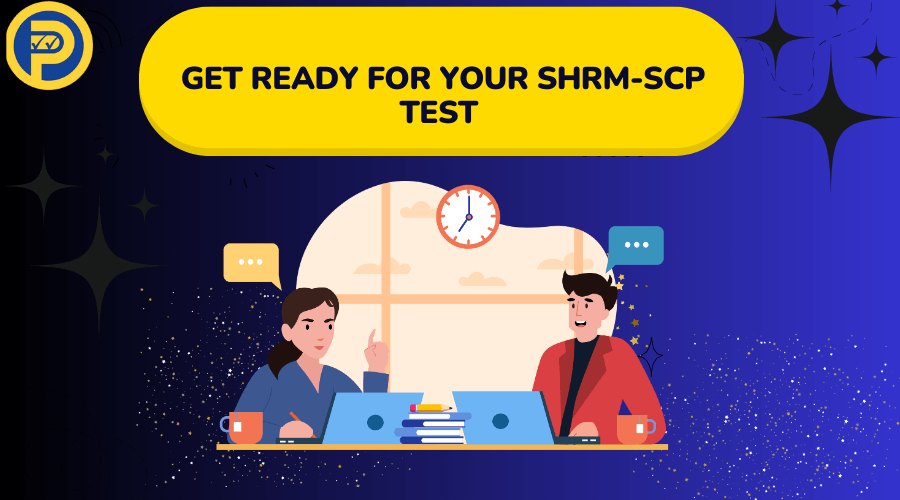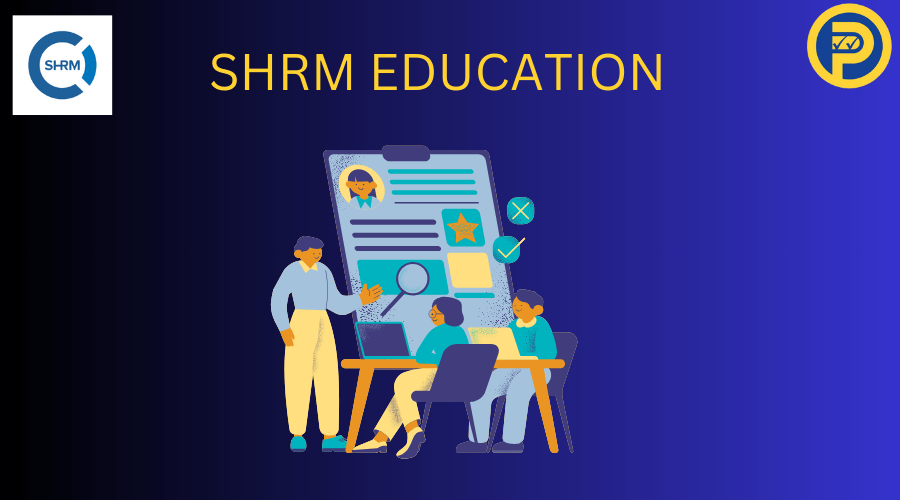The Society for Human Resource Management (SHRM) is a leading organization dedicated to advancing the HR profession.
It offers a wide array of educational programs designed to empower HR professionals with the knowledge and tools necessary for effective organizational change.
This article explores the various educational offerings from SHRM, highlighting their structure, content, and benefits for HR practitioners.
Learn more: Differences Between PHR and SHRM
Overview of SHRM Educational Programs
SHRM’s educational programs are crafted by HR experts and encompass a variety of learning formats, including seminars, certification preparation courses, and on-demand learning.
These programs aim to enhance the skills of HR professionals and equip them with the latest industry knowledge.
Key Features of SHRM Education
- Expertly Developed Content: Courses feature cutting-edge materials that reflect the latest research, legislation, and trends in human resources.
- Flexible Learning Options: Participants can choose from in-person, live online, or self-paced formats to suit their schedules and learning preferences.
- Dynamic Learning Experience: Programs incorporate innovative teaching methods such as gamification and behavioral assessments to enhance engagement.
SHRM Certification Programs
One of the cornerstones of SHRM’s educational offerings is its certification programs. The SHRM Certified Professional (SHRM-CP) and SHRM Senior Certified Professional (SHRM-SCP) certifications are recognized globally and signify a high level of expertise in HR.
Continue reading: How Much Does it Cost to Get SHRM Certified?

SHRM Learning System
The SHRM Learning System is a comprehensive preparation tool for those pursuing SHRM certification. It includes:
- Customized Study Plans: Tailored study paths based on pre-assessments that identify knowledge gaps.
- Interactive Online Learning: Engaging content delivered through various formats including visuals and audio segments.
- Practice Questions: Over 2,700 practice questions available online to reinforce learning and build confidence.
This system not only prepares candidates for the certification exams but also enhances their overall understanding of the SHRM Body of Applied Skills and Knowledge (SHRM BASK).
What are the Main Differences Between SHRM Essentials and SHRM Seminar Programs?
Overview of SHRM Essentials
The SHRM Essentials of Human Resources program is designed for individuals new to HR or those seeking foundational knowledge.
It covers essential HR topics such as recruitment, employee relations, and compliance with labor laws. This program is particularly beneficial for small business owners or managers who handle HR responsibilities without formal training.
Try this out: Try SHRM-SCP Free Questions
Overview of SHRM Seminar Programs
In contrast, SHRM Seminar Programs offer more advanced training tailored to specific HR functions or contemporary workplace challenges.
These seminars delve deeper into topics like talent acquisition strategies, diversity and inclusion initiatives, or performance management systems. They are typically suited for seasoned HR professionals looking to enhance their skills or specialize in certain areas.
Key Differences:
| Feature | SHRM Essentials | SHRM Seminar Programs |
|——————————-|———————————–|———————————|
| Target Audience | Beginners or non-HR professionals | Experienced HR practitioners |
| Content Depth | Foundational concepts | Advanced topics |
| Duration | Shorter sessions | Varies (typically longer) |
| Format | In-person or online | In-person or live online |
These distinctions ensure that participants can select the most appropriate program based on their experience level and professional development needs.
Find out: How to Verify SHRM Certification
How Does the SHRM Learning System Customize the Study Plan for Each User?
The SHRM Learning System employs a personalized approach to optimize study time based on individual needs. Here’s how it customizes study plans:
Assessment Phase
- Pre-Tests: Users begin by taking a series of short pre-tests that assess their current understanding of various SHRM BASK topics.
- Knowledge Gap Identification: The results from these assessments help identify specific areas where users may need more focus or review.
Customized Study Plan Creation
- Once the pre-tests are completed, the system generates a customized study plan tailored to the user’s projected exam date and identifies knowledge gaps.
- This plan evolves in real-time as users progress through their studies, allowing them to adapt their focus based on ongoing performance assessments.
Interactive Features
- Users can visualize their study progress through online topic cards, which depict completed topics and remaining areas of study.
- The ability to drag and drop topic cards allows users to modify their study plans flexibly according to changing priorities or schedules.
This personalized approach enhances efficiency in studying while ensuring comprehensive coverage of necessary material.
Key Benefits of SHRM’s eLearning Courses
SHRM’s eLearning courses provide numerous advantages for busy professionals seeking flexible education options:
Flexibility and Convenience
- Self-Paced Learning: Users can engage with course materials at their own pace, making it easier to balance work commitments with professional development.
- Accessibility: Courses can be accessed from anywhere with an internet connection, allowing learners to study when it suits them best.
Comprehensive Content
- The eLearning platform offers a wide range of topics relevant to current HR practices, ensuring that participants receive up-to-date information that reflects industry standards.
- Interactive elements such as quizzes and multimedia presentations enhance engagement and retention of information.
Cost-Effectiveness
- eLearning courses often come at a lower price point compared to in-person seminars while still providing high-quality content.
- Participants can save on travel costs associated with attending physical seminars or workshops.
These benefits make eLearning an attractive option for many HR professionals looking to advance their careers without disrupting their current work obligations.
Related post: SHRM Study Materials
Examples of Gamification Elements Used in SHRM Educational Programs
Gamification is an innovative approach used by SHRM in its educational programs to enhance engagement and motivation among learners. Here are some examples:
Interactive Quizzes
Quizzes are integrated throughout courses to test knowledge retention in a fun way. Participants earn points or badges based on performance, encouraging friendly competition among peers.
Scenario-Based Learning
Many courses include scenario-based exercises where learners must apply concepts in realistic situations. This method not only reinforces learning but also allows participants to practice decision-making skills relevant to real-world HR challenges.
Progress Tracking Badges
As learners complete modules or achieve certain milestones within their courses, they receive digital badges that signify their accomplishments. This visual representation of progress serves as motivation and encourages continued participation.
These gamification elements make learning more engaging while promoting a deeper understanding of complex HR concepts through interactive experiences.
The Importance of Continuous Professional Development in HR
As the field of human resources evolves due to technological advancements, changing workforce demographics, and new legislation, continuous professional development becomes essential for HR practitioners.
Here’s why ongoing education through programs like those offered by SHRM is vital:
Keeping Up with Industry Trends
HR professionals must stay informed about emerging trends such as remote work policies, diversity initiatives, employee wellness programs, and technological tools that enhance HR functions.
Continuous education helps professionals adapt these trends within their organizations effectively.
Enhancing Skills for Career Advancement
Investing in education not only sharpens existing skills but also opens up opportunities for career advancement. Certifications like SHRM-CP or SHRM-SCP can significantly boost an individual’s marketability and earning potential within the job market.
Networking Opportunities
Participating in educational programs provides valuable networking opportunities with fellow HR professionals. Building connections can lead to mentorship opportunities, collaborative projects, or even job referrals down the line.
Related: SHRM-SCP Recertification
How Does the SHRM Learning System Support Long-Term Retention of HR Concepts?
The SHRM Learning System employs several strategies designed specifically to support long-term retention of HR concepts among learners:
Active Learning Techniques
Active learning techniques are integral to the design of the SHRM Learning System.
By engaging learners through interactive activities—such as case studies, role-playing scenarios, and problem-solving exercises—participants are encouraged to apply what they learn in practical contexts.
This hands-on approach reinforces understanding and aids memory retention by connecting theoretical knowledge with real-world applications.
Spaced Repetition
The system incorporates principles of spaced repetition into its learning modules. Instead of cramming information all at once, learners revisit key concepts at intervals over time.
This technique has been shown to improve long-term memory retention significantly by allowing time for consolidation between learning sessions.
Comprehensive Review Mechanisms
At various stages throughout the learning process, users are prompted to review previously covered material through quizzes and practice questions.
These review sessions help reinforce knowledge while also identifying areas that may require additional focus before moving on to new topics.
Integration with Real-Life Scenarios
By utilizing case studies that reflect real-life workplace situations—such as managing employee relations conflicts or implementing diversity initiatives—learners can better understand how theoretical concepts translate into practical solutions within organizations.
This contextualization enhances retention by making information more relevant and applicable.
Check out: Try SHRM-CP Free Questions
What Kind of Case Studies Are Included in the SHRM Learning System?
The SHRM Learning System includes a variety of case studies designed to provide practical insights into real-world HR challenges faced by organizations today:
Diversity and Inclusion Initiatives
Case studies exploring successful diversity initiatives help learners understand how organizations have implemented effective strategies for fostering inclusive workplaces.
These examples illustrate best practices while highlighting potential pitfalls that organizations may encounter during implementation.
Employee Engagement Strategies
Learners analyze case studies focused on enhancing employee engagement within companies facing high turnover rates or low morale levels.
By examining successful interventions—such as recognition programs or feedback mechanisms—participants gain insight into how targeted actions can positively impact organizational culture.
Learn: How to Reschedule SHRM Exam
Legal Compliance Challenges
Case studies addressing legal compliance issues provide learners with scenarios related to employment law violations or disputes arising from workplace policies.
These examples help participants understand legal frameworks while emphasizing the importance of proactive measures in mitigating risks associated with non-compliance.
Talent Acquisition Success Stories
Exploring case studies centered around innovative talent acquisition strategies allows learners to see how organizations attract top talent amidst competitive job markets.
By analyzing various approaches—such as employer branding efforts or recruitment marketing tactics—participants gain valuable insights into effective hiring practices that align with organizational goals.
By incorporating these diverse case studies into its curriculum framework, the SHRM Learning System ensures that learners not only grasp theoretical concepts but also develop practical skills applicable across various facets of human resource management.
FAQS
Can You Take the SHRM Without a Degree?
You can take the SHRM certification exam without a degree. The Society for Human Resource Management (SHRM) does not impose any formal educational prerequisites for the SHRM Certified Professional (SHRM-CP) certification.
Instead, candidates are evaluated based on their professional experience in human resources. While having a degree may enhance your application, it is not mandatory; individuals can qualify based on relevant work experience alone.
However, preparation is crucial, as the exam is comprehensive and requires a solid understanding of HR principles and practices.
What is SHRM Learning?
The SHRM Learning System is a comprehensive online preparation program designed for HR professionals seeking certification through the Society for Human Resource Management (SHRM).
It focuses on the SHRM Body of Applied Skills and Knowledge (SHRM BASK), which encompasses key competencies and knowledge areas essential for effective HR practice.
The system offers personalized study plans, interactive learning tools, and over 2,700 practice questions to enhance understanding and retention.
By utilizing this system, candidates can significantly improve their chances of passing the SHRM Certified Professional (SHRM-CP) and Senior Certified Professional (SHRM-SCP) exams.
Is SHRM Certification Valuable?
SHRM certification is widely regarded as valuable in the human resources field. It enhances career prospects by signaling to employers a high level of HR knowledge and strategic understanding.
Certified professionals often experience significant salary increases, with SHRM-CP holders reporting a median salary of $70,000 and SHRM-SCP holders earning around $107,800.
Additionally, certification boosts credibility and can lead to higher promotion rates; 82% of entry-level certified HR professionals received promotions compared to 68% without certification.
Overall, SHRM certification serves as a strong differentiator in the competitive HR job market.
Continue reading: Is SHRM Certification Worth It

